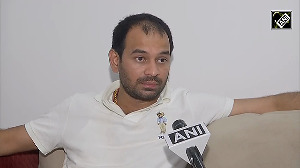A meeting, convened for this purpose in New Delhi by the Prime Minister, was attended by Commerce Minister Kamal Nath and Agriculture Minister Sharad Pawar.
Both the ministries have been asked to hold consultations on Tariff Rate Quota approach for these products in the FTA ahead of the Trade Negotiating Committee of ASEAN-India FTA meeting beginning April 24, official sources told PTI.
Commerce Ministry has mooted TRQs under the FTA to the ASEAN member countries, which export these products in the wake of Agriculture Ministry's strong objection to their inclusion in the trade liberalisation programme.
TRQ is a specific quota offered to a country for exports at a fixed duty, which is lower than the importing country's normal duty.
As per Agriculture Ministry, these commodities form a part of its list of Special Products in the World Trade Organisation and have sensitivities involved, so under any FTA it cannot agree to have zero tariff on them.
In some of the commodities like pepper and palm oil, their rising imports from Sri Lanka under the Indo-Sri Lanka FTA has impacted this sector which mainly consists of small growers and manufacturers.
But if these products are not included in the FTA, then objective of such an agreement would be lost which worked on principle of all trade meaning at least 80 per cent of trade.
If these commodities are kept in the sensitive list then single product exporting countries like Malaysia (which exports mainly palm oil) will not meet the criterion of all trade and this is the argument being put forth by ASEAN, which wants these items out of India's sensitive list.
With the issue now being resolved with the direct intervention of Prime Minister, it may not go to the Trade and Economic Relations Committee or Cabinet.
New Delhi, has already compromised on the Rules of Origin with ASEAN, where it was agreed to have 35 per cent value addition and change in tariff sub-heading level. ROO govern origin of products in a country.
India, which had proposed a negative list of 1,414 items, has pruned it to about 900. Implementation of ASEAN-India FTA has already been delayed by over a year with both sides dropping the Early Harvest Programme. The new date for implementation of the FTA is January 1, 2007.





